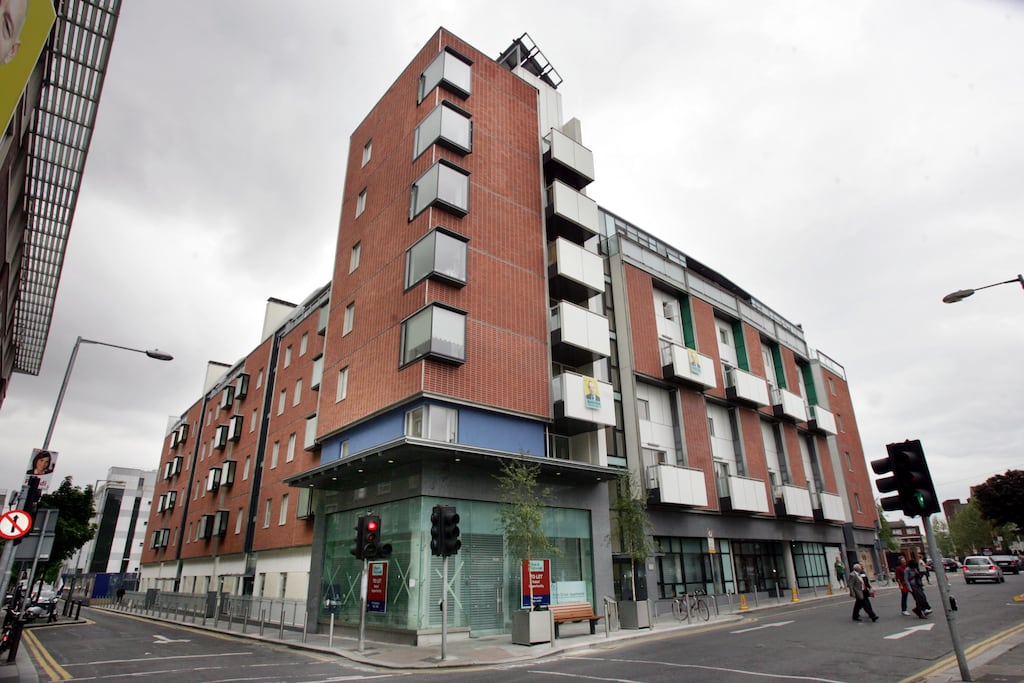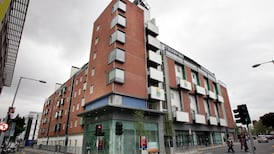Dublin City Council tenants face rent rises from next year, some of which could be more than 50 per cent, in the first major shake up of the city’s social housing rent system in 30 years.
The council plans to change how it calculates rents so higher earners pay more, but tenants of all incomes can expect increases, as the local authority attempts to fill a €55.5 million funding gap in its housing maintenance budget.
The move comes after an analysis of tenant incomes found more than a fifth of council households have an after-tax income greater than €1,000 a week but are paying heavily subsidised rents, with the average charge across the scheme €83 per week.
The council operates a “differential” rent system, with rents based on the net incomes of tenants. The principal earner in a household pays 15 per cent of their net weekly income exceeding €32. Up to four subsidiary earners pay a contribution to a maximum of €21 each a week – no more than €84 in total.
READ MORE
Documents seen by The Irish Times show the council wants to increase the principal tenant charge to 18 per cent, but raise the unassessed portion of income from €32 to €50. Subsidiary earners’ contributions would almost double to €40 each a week, and the cap on the number of subsidiary earners charged would be removed.
The council also plans to increase the assessable income of self-employed tenants. Currently, taxi drivers and other “non-trade” businesses are assessed on an “assumed net income” of €500 a week, whiles tradespeople – plumbers, electricians, etc – are assumed to have a net income of €560 a week. This will be increased to €700 for all self-employed tenants.
The documents state the current system “benefits higher-income households in tenancies”.
Of the council’s stock of just over 26,000 flats and houses, 5,854 are occupied by households with net incomes of more than €1,000 a week.
The new system, while it would result in increases across the board, sees lowest-income tenants pay about 10 per cent more, but higher earners’ rents increase significantly.
More than half of principal earners have net incomes exceeding €400 a week. If someone at the lowest end of that cohort, on €400, lives alone they can expect a 14 per cent increase. If they live with two adult earners the rent will increase by 47 per cent, but if there are four additional adults in the house, the rent will rise by 60 per cent.
The gap between council funds for housing maintenance and annual income is €55.5 million. The changes to the system would result in additional income of €35.5 million, with almost €21 million of that provided through the new charges on secondary earners, the documents show.
Independent councillor Mannix Flynn said rent increases were “premature” when many council tenants were living in substandard conditions.
“You have all sorts of problems with these buildings that, let’s face it, are not the tenants’ fault; responsibility rests with the local authority.”
Low rents paid by secondary earners was a problem, he said, but this was an “anomaly created by the city council and allowed to continue by the city council”.
The council should seek Government funding to address the maintenance deficits, instead of asking tenants to assume the burden, he said.
“This Government is awash with cash, and people living in the most dilapidated accommodation are being asked to pony up the money to solve this problem.
“Child poverty in the city is heavily concentrated in social housing, this is going to exacerbate that situation.”












